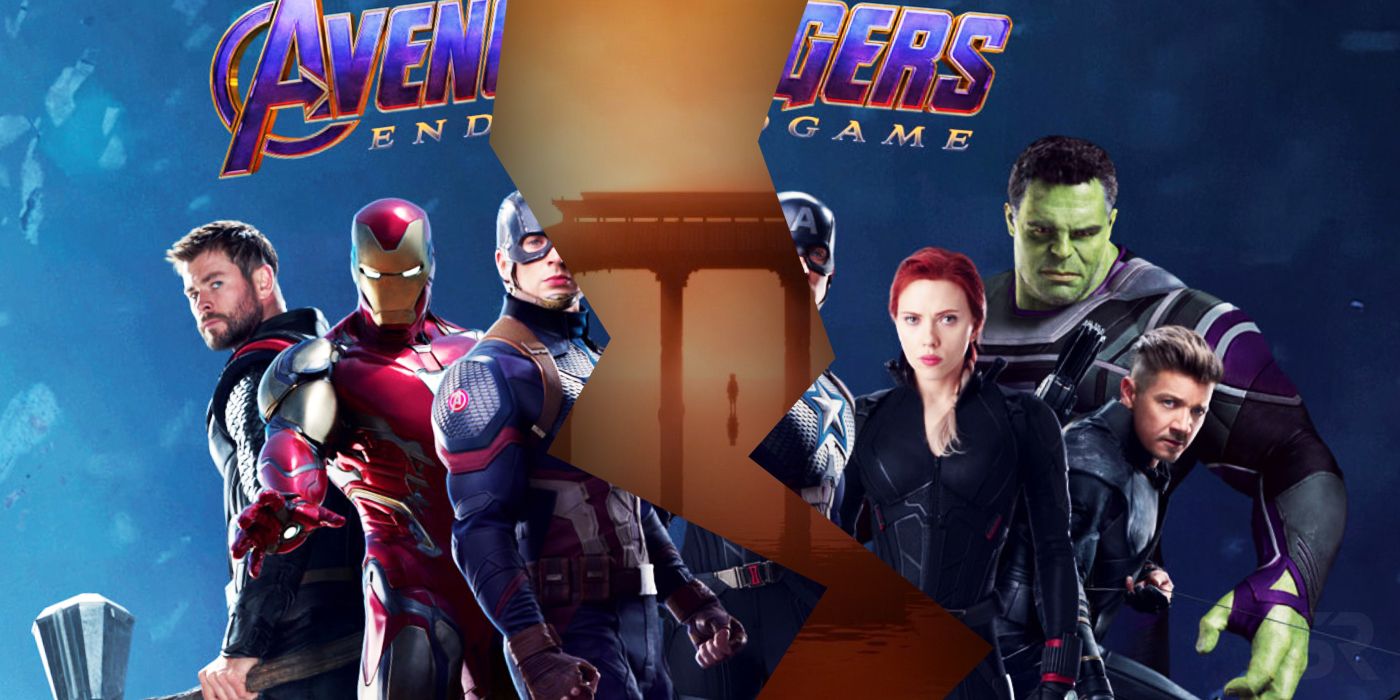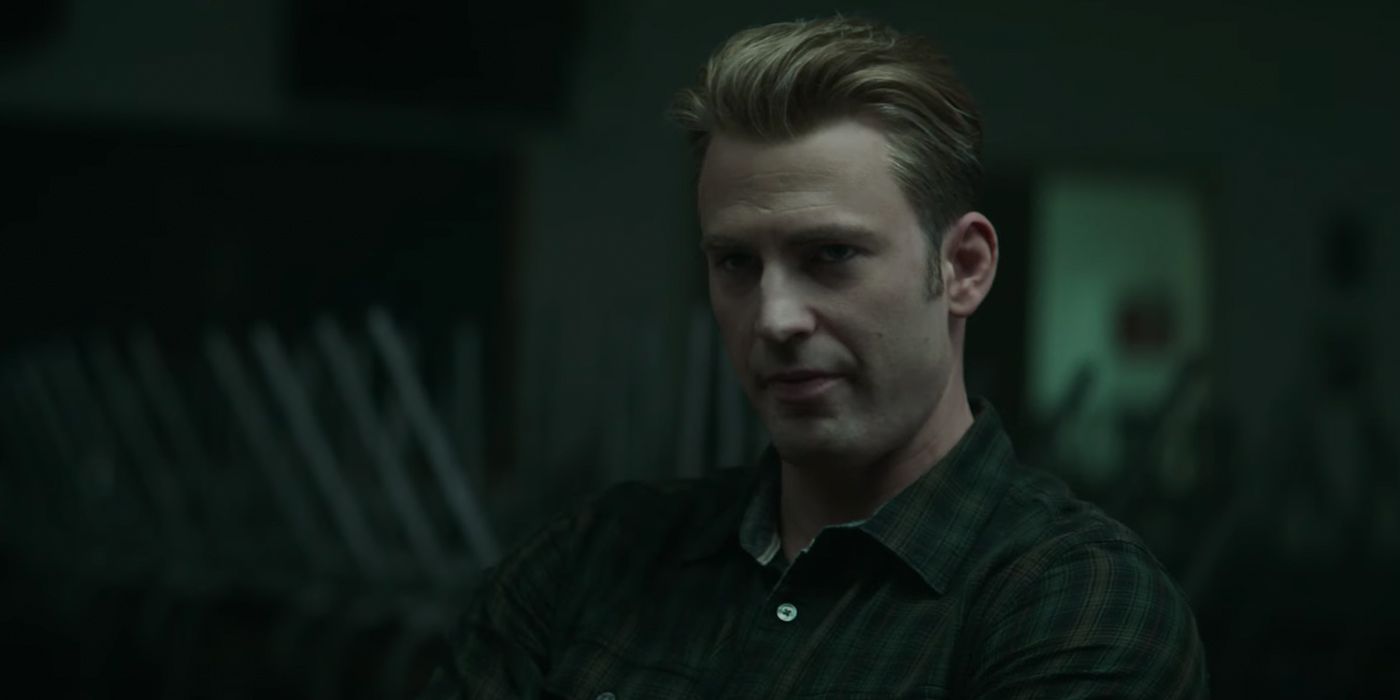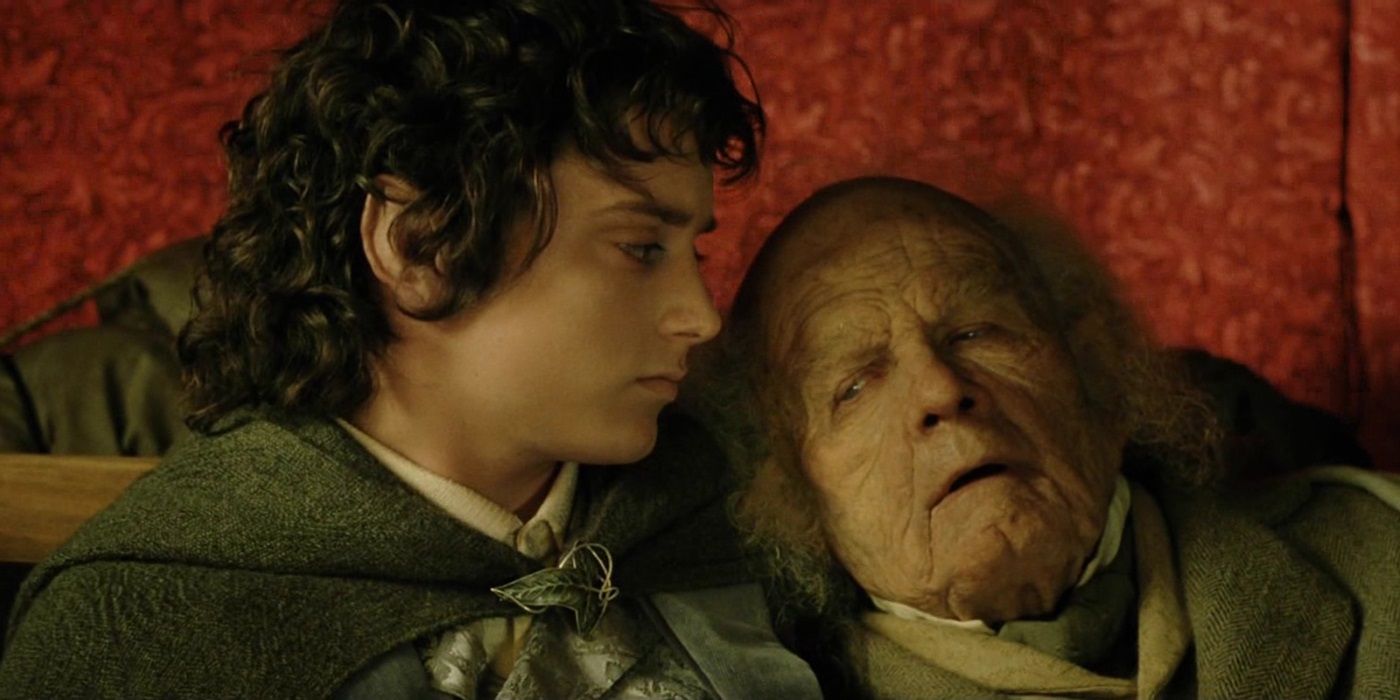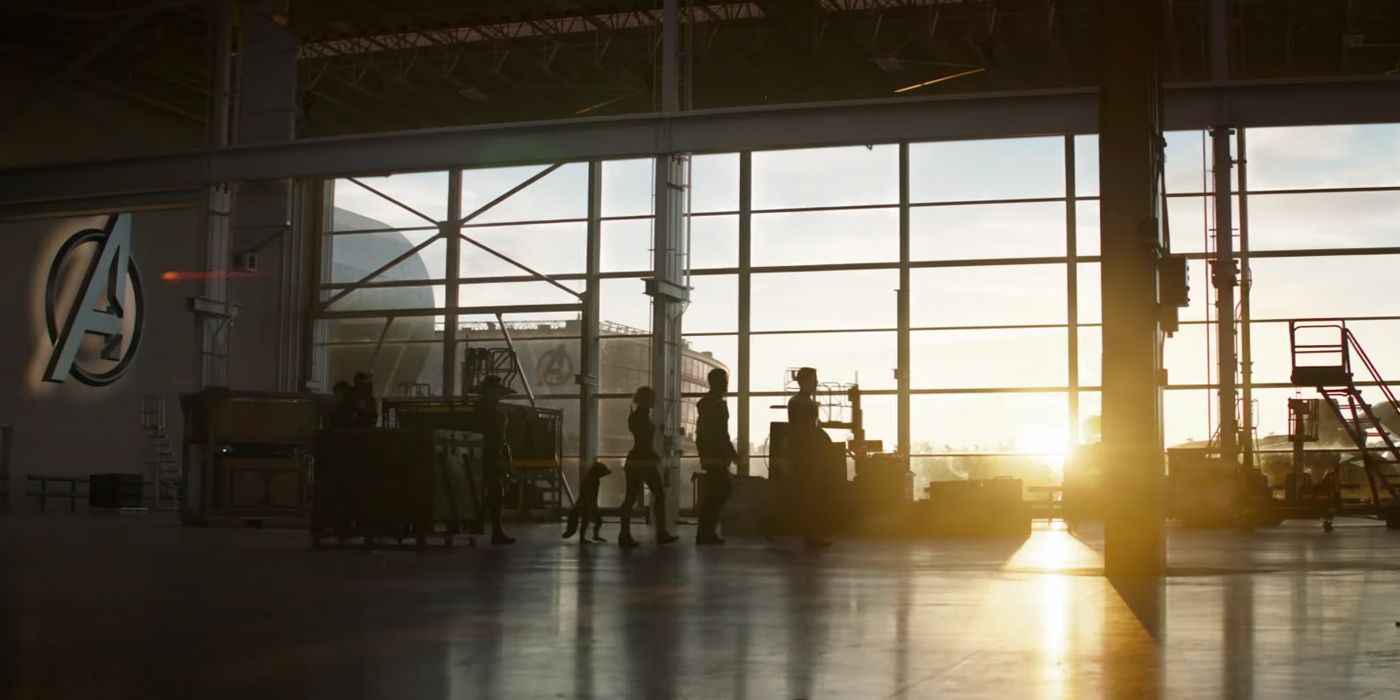The suggestion that Avengers: Endgame will have an intermission is a very bad idea. That's right, the latest rumors surrounding the MCU culmination aren't about the movie's mysterious plot at all, but its runtime; it's been reaffirmed by directors the Russo brothers that the current edit of Endgame is around the three-hour mark, which has led to subsequent suggestions that Marvel is considering having a break in the theatrical release.
That Avengers: Endgame will likely end up around three hours long is hardly surprising. It's a direct sequel to Avengers: Infinity War (itself two-and-a-half hours long) and will need to not only deal with Earth's Mightiest Heroes doing their finest avenging and undoing Thanos' snap to bring all the dead heroes back to life, but round out this era of the MCU. It's a big goodbye to at least some of the original Avengers (both Robert Downey, Jr. and Chris Evans' Marvel contracts are up), and that's going to warrant something of a scale the franchise hasn't seen.
Related: Avengers: Endgame Super Bowl TV Spot Breakdown: 19 Story Reveals & Secrets
What makes considerably less sense is the suggestion that Avengers: Endgame will need an intermission as a result. This is already Part 2 of a story that has technically been building over 21 previous movies; to put off the ending any longer is bizarre. Here's not only why the idea is incredibly ill-informed based on the history of the intermission and epic movies, but how it could be a major box office mistake for Avengers: Endgame.
- This Page: Why The Avengers: Endgame Intermission Rumors Make No Sense
- Page 2: How An Avengers: Endgame Intermission Could Hurt The Box Office
Avengers: Endgame Getting An Intermission Would Be Unprecedented
The majority of positive reactions to an intermission in Avengers: Endgame have highlighted how it would see a return to the days of yore, but that belies the real reason intermissions existed in the first place.
Historically, there were two reasons for an intermission from Hollywood's side. The more common dates back to the age of B-movies that played before the main picture; there'd be a gap between the two films included in the ticket. The second, and the one that has the more grandiose associations, is that of roadshows and epic movies. In the 1950s and 60s, when TV threatened the movie industry, Hollywood attempted to boost the prestige of going to the cinema. They did this with gigantic, lavish productions with tough runtimes and an intermission to create the sense of going to a theater. There were also "roadshow" previews where a movie literally traveled around America before a standard release that heightened this even further. Both of these practices fell away decades ago: the roadshow was a product of Old Hollywood and went away almost completely by the end of the 1960s, while B-movies haven't been an industry standard since the 1970s. The majority of people getting excited for Avengers: Endgame - definitely its target audience - were born when intermissions were long gone.
In fact, if anybody born after 1980 grew up seeing movies with an intermission, that's more a sign of the limitation of their local theater. Before digital, films were typically projected on 35mm film, made up in reels of around 10 minutes in length. Many screens would have two projectors side by side to switch reels seamlessly (see Fight Club and its discussion of cigarette burns), but others with just one projector would spool the individual reels onto a larger one. However, films over two or so hours couldn't fit on a single reel and so it needed to be replaced mid-film; and thus an intermission was introduced. Here, it wasn't an attempt to heighten the cinemagoing experience, rather a product of technical limitations. Any nostalgia from the practice comes from fond memories of the film, not the methodology itself.
Today, there's absolutely no industry need for an intermission on any film; the marketing or mechanical reasons do not exist anymore. Indeed, the biggest film in recent memory that utilized one was the 70mm version of Quentin Tarantino's The Hateful Eight, which was an explicit throwback to the roadshows of yore and got a limited run alongside a more conventional release. Beyond that, there are few prior examples to warrant Endgame having an intermission.
Related: Everything We Know About Avengers: Endgame's Reshoots
Longer Movies Than Avengers: Endgame Didn't Have Intermissions
As already stated, the latest reports on Avengers: Endgame's runtime suggest that the edit is (rather sensibly) currently around three hours long. This isn't like reports of Black Panther's first cut being four hours or Glass being three where it was just a very rough assembly; this is a conceivably releasable film that the Russo brothers are now tightening up.
The pervasive thinking is that three hours is simply too long for a major tentpole and so it needs a break to help audiences. Where this falls down is the complete lack of precedent. In 2003, The Lord of the Rings: The Return of the King came in at a whopping 200 minutes (3 hours and 20 minutes). It was likewise the end of a grand cinematic journey with an epic scale that justified the runtime, and that didn't get an intermission. That same can be argued for James Cameron's Titanic (3 hours and 15 minutes) a few years earlier and Christopher Nolan's Interstellar (which came in at 2 hours and 49 minutes). All of these movies were financially successful and roundly praised, with most criticisms not coming from length.
Since those examples, we have only moved further away from length aversion. Tentpole movies are, on average, longer - the knockabout Aquaman was 2 hours 20 minutes - and audiences have only come to accept it more and more. Some may bemoan the lack of toilet break, but that's been true for decades. On the whole, three hours for Avengers: Endgame is not some ridiculous excess and viewers don't need a buffer to ensure continued engagement.
Page 2 of 2: How An Avengers: Endgame Intermission Could Hurt The Box Office
How An Intermission Could Hurt Avengers: Endgame's Box Office
However, all of this discussion of historical precedent and previous cases ignores something more pressing: the money. Many have posited that an Avengers: Endgame intermission would allow theaters to sell more snacks to audiences, which may be true, but that would only impact those showing the movie while likely undercutting the studio (who get the majority of the ticket sales and ultimately make the intermission decision).
Theory: Ant-Man Was Digitally Removed From Endgame Super Bowl Spot
One of the most tangible concerns on a business side with a long movie is how it restricts showtimes. The longer a film, the fewer showings per screen there can be a day, and so the fewer tickets that can be sold (especially damaging in opening weekend). Normally, this is offset by the length of a film carrying with it a sense of prestige. For every screening dropped by the length of a Titanic, a Lord of the Rings, an Avatar, a Nolan, the scale of the story and must-see nature aided by that runtime leads to a greater footfall and per-screen average. But there is a point where this profit disappears, and Avengers: Endgame's intermission may push it over the limit.
Assuming a one-hour turnaround to account for cleaning, seating and adverts, a two-hour movie showing takes up three-hours of screen time; there can be four showings in a 12 hour period. For a three-hour movie, that's a four-hour window and the number of showings in 12 hours drops to three. But if you go beyond that and add 30 minutes for an intermission, the screen time goes over four hours and there can only be two showings per screen in a 12 hour period. Theaters can operate for longer times, but the impact under these restrictions is clear; an intermission pushes Avengers: Endgame longer than either Titanic or The Return of the King, and it's worth noting that in this case, Marvel's stinger culture means the credits can't be repurposed as cleaning time.
It's hard to tell how seismic an intermission would really be to Avengers: Endgame's box office, but with it possibly halving the number of screenings per screen per day compared to a two-hour movie, it's going to be fighting an uphill battle. Conversely, keeping the runtime under the three-hour mark creates considerably less upset. There's infrastructure in place and proven examples.
All of this ignores the side effects of giving Avengers: Endgame an intermission. The prospect of an excursion being made needlessly longer itself may be offputting to many - not least families - while theaters having to handle the mass influx of patrons in 15-minute bursts from the large auditoriums Endgame will inevitably show in may cancel out what's made from selling a few more bags of popcorn.
Why An Avengers: Endgame Intermission Is Unlikely
The above talking points highlight why an Avengers: Endgame intermission is an ill-advised idea: it's hearkening to an idealized time that only ever existed to get disenfranchised moviegoers into theaters or out of technical necessity; goes against the example set by longer, massively-successful event movies; and could have a serious impact on how well the movie actually does. In this light, it seems crazy Marvel would even consider a break.
And, odds on, they probably aren't. Joe Russo has said they've "joked about it in the edit room", and that may be the root of all this. An intermission discussion is going to come up with a movie of this length but amongst industry professionals not in any serious, actionable way. These reports come from a single source tweet that highlights consideration, and it's hopeful this was all the overactive Avengers: Endgame rumor mill getting bent out of shape (again).







